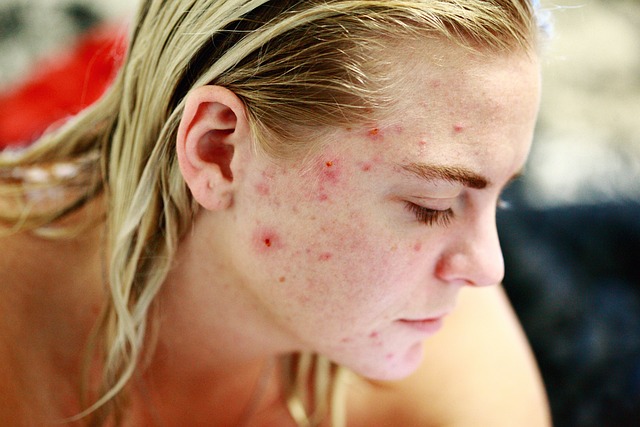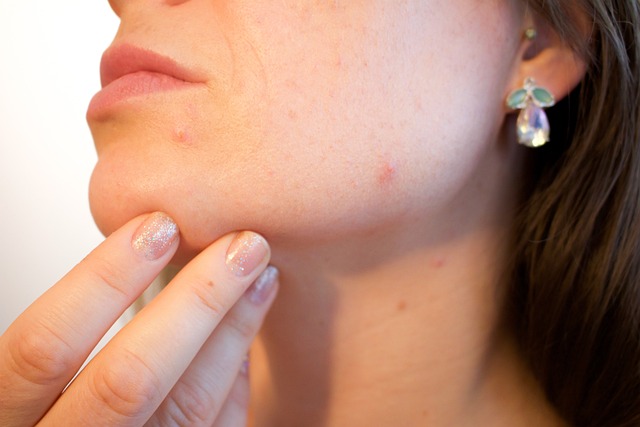In this post, we will talk about how to Solve Your Acne Problems. Acne is a skin disorder characterized by inflammation of the sebaceous glands, resulting in pimples on the face and other body parts.
In fact, over 85% of young adults and teenagers have it. It can occur in various forms: blackheads, whiteheads, papules, pustules, nodules, or cysts.
Solve Your Acne Problems: A How-To Guide

It poses several complications to the affected person, not only in their social life based on their looks but also emotionally, as it affects their self-esteem and confidence.
In that case, you must find a quick intervention to fight the problem. In this comprehensive guide, you will learn all you need to do to conquer acne and earn that clear skin.
Main Causes of Acne
To treat an acne problem, you must first find its leading cause. Knowing such can help you find its solution and manage its outbreak. Here are the factors that lead to the development of acne:
Sebum Secretion
Sebum is an oily secretion that, under normal conditions, is secreted for the skin and hair lubrication from the sebaceous gland.
If it is overly produced, it can lead to the sealing of the pores, which leads to acne. Factors that contribute to the productivity of sebaceous glands include, among others, hormonal imbalance, genetic predisposition, and specific drugs.
Genetics and Hormonal Changes
Genetics are among the predisposing factors for the development of acne, especially if both parents suffer from the condition.
Once a person hits puberty, levels of androgens increase, thus placing them at risk for acne development. Increased levels of androgens lead to overstimulation of the sebaceous glands, hence causing the sebaceous glands to produce more sebum. If this persists, it can eventually provide an ideal environment for acne bacteria.
Bacterial Infection and Inflammatory Response
Acne may be caused by inflammations of the hair follicles surrounding skin tissue. Inflammation is a normal body response to injury, infection, or irritation.
Clogged pores by dead skin lead to propionibacterium acnes. These acnes can multiply fast, leading to acne lesions, thus developing pus-filled pimples.
Dietary Factors
Although being debated a lot, researchers have found that the food someone eats may cause acne. High glycemic index foods, dairy, and those with high levels of saturated fats are likely to worsen the symptoms of acne. Besides that, sensitivity to foods or food allergy may also be a possible cause in a few cases.
Environmental Factors
Environmental contributors, such as pollution, humidity, and even exposure to ultraviolet (UV) rays, have proven to potentially have a varied impact on acne-prone skin.
Both pollution and moisture contribute to clogging in the pores, while UV radiation triggers inflammation and may worsen the acne condition for some.
How to Solve Your Acne Problems
Once you understand the leading causes of acne problems, you need to take immediate and long-term actions. Consider the following measures to address the issue:
Skincare Routine for Acne-Prone Skin
Come up with a skincare regime developed explicitly to handle specific skin acne, thus preventing breakouts and taking care of your skin in general.
First, wash the skin gently, cleaning twice daily to remove any dirt, oil, or impurities. In addition, incorporate skin exfoliation in your routine to break up any possible clog.
For effectiveness, seek out ingredients formulated especially to fight the acne you have, such as salicylic acid or benzoyl peroxide.
Lifestyle Changes
Stress, lack of sleep, or physical inactivity will also worsen acne. You can do a few things to improve your skin and make yourself feel better.
Find ways to relax and reduce your stress, get the right amount of good sleep, and make an effort to exercise regularly. Adopting such a lifestyle will go a long way toward good skin, health, and general happiness.
Professional Treatments
For severe or stubborn acne, seeking treatment by a board-certified doctor or dermatologist experienced in specific acne matters can be crucial.
There are so many acne treatment methods that may be advised depending on the severity of the actual kind of acne to be addressed.
While most will go away with a few prescriptions of oral antibiotics like tetracycline, doxycycline, and minocycline, some are stubborn and require advanced medical interventions.
The most common interventions dermatologists might suggest
Chemical Peels
This form of treatment is administered to remove the outer layer of the skin to enable cell turnover. Moreover, it helps eliminate acne by breaking down and reducing oil production. Ideally, ingredients in chemical peels in treating acne include salicylic acid, glycolic acid, and lactic acid.
Laser Therapy
Laser treatment tries to reach the selected skin to kill acne-causing bacteria, reduce inflammation, and stimulate collagen production.
The three types of laser therapy include pulsed dye, fractional, and intense pulsed light (IPL) therapy. This form of treatment is advisable primarily for cystic acne.
Steroid Injections
Steroid injections are administered right at the site of inflamed, painful cystic acne lesions. They help decrease inflammation by shrinking the cyst, reducing its size, and aiding in treating pain. However, this treatment is generally reserved for larger cysts or nodules but not for widespread acne.
Extractions
This involves physical extraction using special tools to eliminate comedones that are closed (whiteheads) or open (blackheads).
This forces the sebum and dirt inside the pores onto the skin’s surface. However, the extraction will likely end in scars and secondary infection; it is advisable to approach this treatment cautiously.
Isotretinoin (Accutane)
This is a potent oral vitamin A base medication used in treating severe cases of refractory types of acne, which have proved recalcitrant to many other treatments.
Ideally, isotretinoin reduces sebum production, shrinks the oil glands, and helps prevent the formation of new acne. However, it produces some common adverse effects, such as dryness of skin, dry eyes, joint pain, or even congenital disabilities if taken during its administration. Thus, close monitoring by a dermatologist is required, and it may only be prescribed under strict guidelines.
Home Remedies

This includes homemade treatments that may serve as adjuvant therapy with professional treatment and some skin care procedures.
Most are made up of natural ingredients such as whole tea tree oil, honey masks, and aloe vera. Primarily those showing some anti-inflammatory and antibacterial properties. Integrating such in your skincare helps drastically reduce this irritation.
The key to a permanent solution to acne is a deep commitment to managing it. It has to be looked at comprehensively from skincare, diet, lifestyle, and professional intervention.
With the above-given tips and strategies, you should be able to say goodbye to acne forever and welcome the clear, flawless face you could only dream of.
However, remember that clear skin is one revelation away once all the knowledge is availed, and the levels of dedication are high.